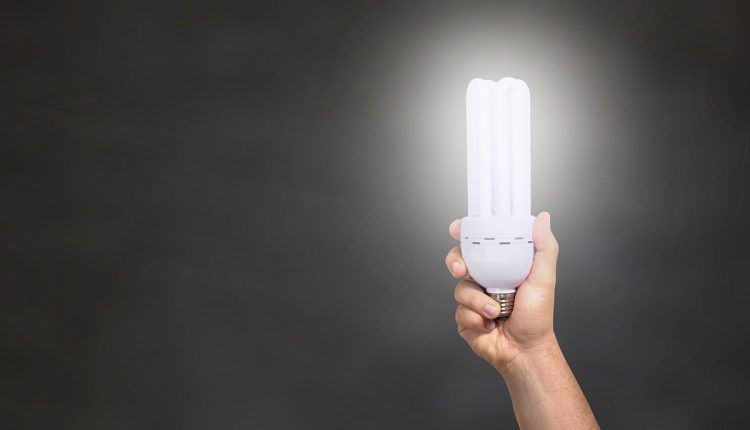Recessed lighting makes a dramatic statement about how bright living rooms, dining areas, and kitchens can be. Designed to be easily installed into ceiling holes using spring clips that attach directly to them, its quality lighting makes a positive difference in any setting. Find the led downlight buying guide.
Determining the appropriate recessed light size depends on both your room’s layout and how much general illumination you desire. For sloped ceilings, 6″ lights offer a more general definition than their 4″ counterparts.
IC and AT Rated
This ultra-thin canless LED recessed light is a game changer in recessed lighting. It clips directly into your ceiling without needing housing or can, saving space and money while meeting insulation compliance (non-IC fixtures require 3 inches of clearance from insulation), making it perfect for new construction and remodel projects where less heat must be generated to avoid condensation.
IC ratings greatly reduce airflow from your unconditioned attic space to the conditioned rooms below, helping reduce heating and cooling costs and keeping costs under control. They’re also vital in keeping the fire from spreading from recessed lights into other parts of your home.
This fixture’s wet-rated (wet location) and airtight design make it suitable for use in bathrooms, kitchens, and other damp environments such as bathrooms and kitchens. Color temperature selection options include 2700K warm white, 3000K neutral white, and 4000K cool white to create any atmosphere you wish in any room – with an easy switch inside its J-box for selecting your ideal hue temperature.
Size
Recessed lighting sizes vary based on both their luminosity and number of fixtures used in a room. As a general guideline, one fixture for every six feet of ceiling space should suffice, though personal preferences and design aesthetics can play a factor. Once this has been decided upon, lumen goals should be established before selecting bulbs (considering any maximum wattages of fixtures).
Trim styles also play a part in the aesthetics of fixtures. Round and square trim styles are popular options that work well when installed together to complement furniture, wall art, or other features in a room.
Many recessed lighting fixtures come as kits containing housing, trim, and LED modules in one package. These kits can come with line voltage or low voltage options; most kits operate off household current, while some come equipped with built-in drivers to lower voltage levels. Most US recessed lights meet energy efficiency standards, while some are even certified ENERGY STAR approved.
Styles
Choose the perfect trim style for recessed lighting fixtures to reflect the style and atmosphere you wish to achieve, along with each institution’s number and wattage requirements.
Adjustable trim recessed lighting fixtures can be an ideal way to highlight artwork or decor features like water fountains and sculptures in your home and provide ambient or task lighting in a kitchen.
Eyeball trims are among the most prevalent styles of recessed lighting trims. Baffle, pinhole, slotted, and decorative trims also represent options. Eyeballs tend to stand out more often as directional sources of illumination than any other trim type; thus, they often can be found in halls or on stage ceilings, providing focused, directed illumination.
Multifaceted reflector bulbs are an effective solution for creating an ambient lighting spotlight effect in recessed environments. This bulb type features multiple metallic reflective squares layered inside it that focus the light into a narrow beam often used to highlight paintings, sculptures, or other art in a room.
Materials
Can lights, spotlights or downlights be fixtures that contain an illuminated bulb within a circular housing? Recessed into the ceiling, they inspire an entire room or highlight specific features like fireplaces or wall art pieces by shining light downward. When designing and installing recessed lighting layouts, there are several essential factors to remember, such as the types of cans needed, their spacing, and wattages – these all factor heavily.
The style of fixture trim plays an essential role in setting the scene and atmosphere of any space. Most fixtures offer metal finishes and designs ranging from plain to decorative; some even come equipped with baffles to reduce glare for a softer, diffused light source.
Homeowners typically opt for professional installation when it comes to lighting fixtures that require special IC-rated housing to prevent fire from insulation failure, and institutions equipped with built-in junction boxes and Type NM wiring clamps make the task significantly simpler.
Placement
Your lighting requirements for any space will depend upon its size and ceiling height, as well as how much natural light enters through windows, among other factors.
Standard practice dictates dividing ceiling height in half and using that as a guideline for spacing out lights evenly – e.g., if your ceiling height is 10 feet wide, then four-foot spacing would be required between lights on a 10-foot ceiling.
However, this is just a general guideline; depending on the recessed lighting style you choose will play an integral part in how far apart they should be placed. For instance, larger downlights that emit more lumens may allow closer spacing than their smaller counterparts.
Dimmers or smart LED bulbs provide the control needed to set the ideal ambiance in any space, whether entertaining guests or relaxing at home on an intimate evening. These features make creating the desired mood easy!
Read also: How Far Apart Are Cornhole Boards?


Comments are closed.